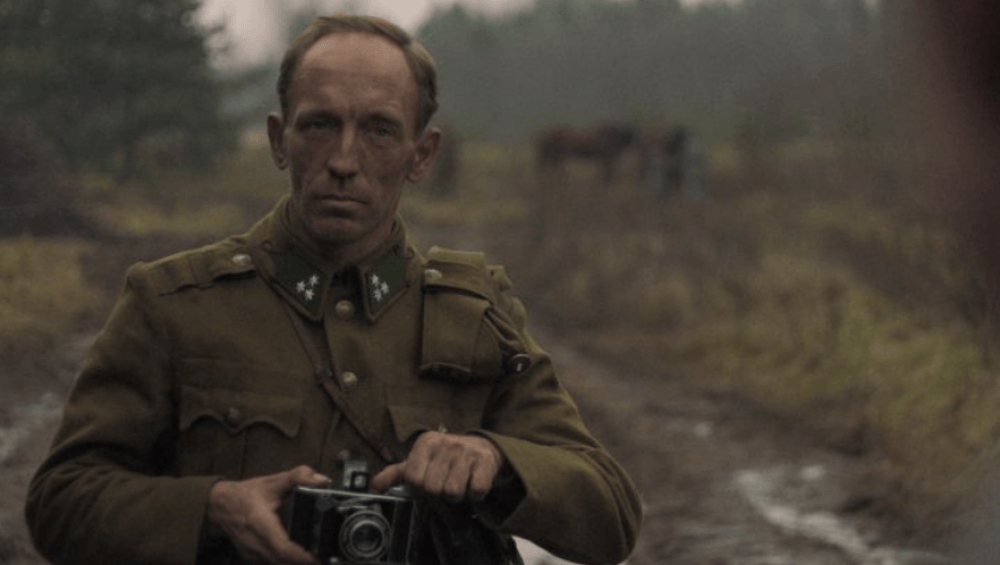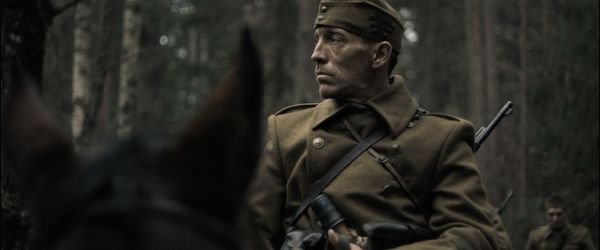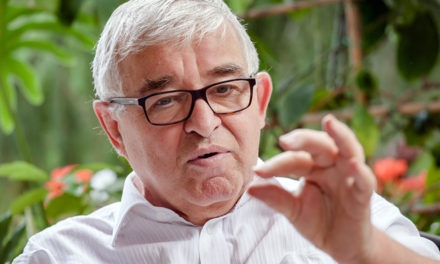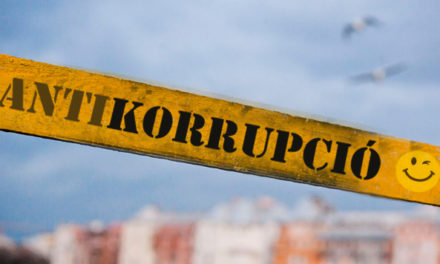Let's be happy, because on March 5th, both Hungarian films in competition were among the winners at the 71st Berlin International Film Festival, and we should be especially happy about Dénes Nagy's Natural Light , because the director, who made his debut with his first feature film, received the Silver Bear award for best direction. On the other hand, we can no longer be happy that after viewing the work, we look in the mirror with shame and begin to hate not only ourselves, but also our ancestors.
Let's be happy about the choice of topic, since the creator draws from Hungarian history, he is working on Pál Závada's novel of the same name, but he only focuses on a small part of the large-scale work spanning twenty years, for three days, sometime around 1942-43. The hero of the fictitious story is Lieutenant István Semetka, who serves in a Hungarian partisan hunting unit in the territory of the occupied Soviet Union, somewhere in the vast, marshy Bryansk Forest. During a deployment, the unit comes under fire while passing through the village, their commander is killed, and the retreating national guards take revenge on the villagers for not warning them. That's pretty much the story, and let's be happy that even though Natural Light is fiction, it doesn't depict something that didn't happen or could have happened in reality.

Source: Campfilm
Let's be happy that this film gets you in the mud and drags you into the depths, and also that it was realized as a real co-production with the cooperation of four countries on the initiative of a Hungarian creative team. Because who else could take the initiative to record the inglorious deeds of Hungarian soldiers for eternity than us Hungarians. Obviously, we cannot take the initiative to make a historical film about the war crimes of German, Russian or American soldiers - perhaps Krisztián Ungváry could not give such great advice for that - and especially not to present the reality of the contemporary Muslim and/or Black African world. Although there would be plenty of topics, here is the international story of African correspondents Mathy Mupapa and Christelle Nyakura , which of course cannot be compared to a fiction, it simply tells the reality. This is how I imagine the synopsis:
Zainabo Alfani, a widowed trader living in Kisangani, decides to travel to Bunia with the three youngest of her eight children, two girls and a six-month-old boy, to sell some jewelry there. There are fourteen other women on the bus, but 135 kilometers before the finish line, they suddenly hear shots, and the women ask the driver to turn back. However, the driver suggests that the passengers get off and hide in the jungle while the shooting continues. As soon as the women and children do this, the bus driver turns back, leaving his gullible passengers on the side of the road. They try to hide, but they are discovered by eighteen soldiers in military uniform, led by the mercenary Muvuta Bangi, and then they are ordered to take off their clothes. Afterwards, the women's lower bodies are carefully searched, looking for their typical war fetish, and focusing on female genitalia that have not yet been mutilated.
With only Zainabo having an intact body, the others are slaughtered, Zainabo's labia are cut off and eaten, and they all rape her. The woman faints from the pain, but later wakes up to find pieces of her hip being cut off, which her attackers divide among themselves. Then they make wounds on his legs, arms, and under his breast, and drink the blood that has flowed out, mixed with some water and pieces of meat cut from his body. After the ritual, they drag the woman and her children further into the forest, where, upon reaching a clearing, they turn a human body on a skewer in the cooking area. Then her torturers put two cauldrons on the fire, one filled with water and the other with oil, and Zainabo's two little girls, ten-year-old Alima and eight-year-old Moulassi, are thrown into the cauldrons. They pierce the children's bellies with iron skewers to cook them softer, and then eat one of the corpses with foufou, a cassava noodle. The other is set aside for later. Muvuta Bangi, the mercenary, then tells the mother that he plans to cut more pieces from her body. The woman, who is on the verge of madness, only asks that her and her baby's remains be taken back to the side of the road, in case someone bury them out of compassion and then lose consciousness. The woman and her son, who had been mutilated multiple times and were tortured to death, were eventually found by the side of the main road and taken to the Nouvelle Esprérance hospital in Bujumbura, the capital of neighboring Burundi. Zainabo dies of AIDS acquired during the attack a few years later, but before that she publishes her story at a meeting of the human rights organization MONUC. He is survived by his infant son Yacine.
Of course, this story is not the task of Hungarian filmmakers to process, and it is not necessary to prepare it with the support of the National Film Institute, the Hungarian Film Professional Tax Benefit, the Kreatív Európa Media program, or some other European organizations, but it is a (poetic) question whether the Democratic Republic of the Congo will film it is it? Or is Morocco filming a movie about the beheading of Louisa and Maren, the two Scandinavian tourist girls three years ago? And if we go back to the past, will Russia ever commemorate on the screen the dishonor of hundreds of thousands of Hungarian women, which their soldiers committed during the occupation, sorry, liberation of our country?
It is true that these countries do not enjoy advanced Western culture, so freely chosen self-hatred is hardly an expectation for them, and they probably have no idea of forcing their children and grandchildren to do penance for the horrors of their own history - or indeed their everyday lives. We got this as a reward, as members of the club of the modern world, of course only when we want praise, a pat on the back combined with a pat on the back, topped off with a glittering prize from the anointed priests of high culture. Let's be happy, because the jury said about Dénes Nagy's war film that it "confronts the viewer with the choice between passivity and individual responsibility". They just know.
We, on the other hand, should continue to be happy that after seeing the Natural Light , we look in the mirror with shame and begin to hate not only ourselves, but also our ancestors, because in the hell of war - where the civilizational glaze melts first, there are no people in this way, only the living and the dead - , they dared to choose life so that they could give life to us in the future.
Let's be happy!
Even if we want to receive additional awards.













